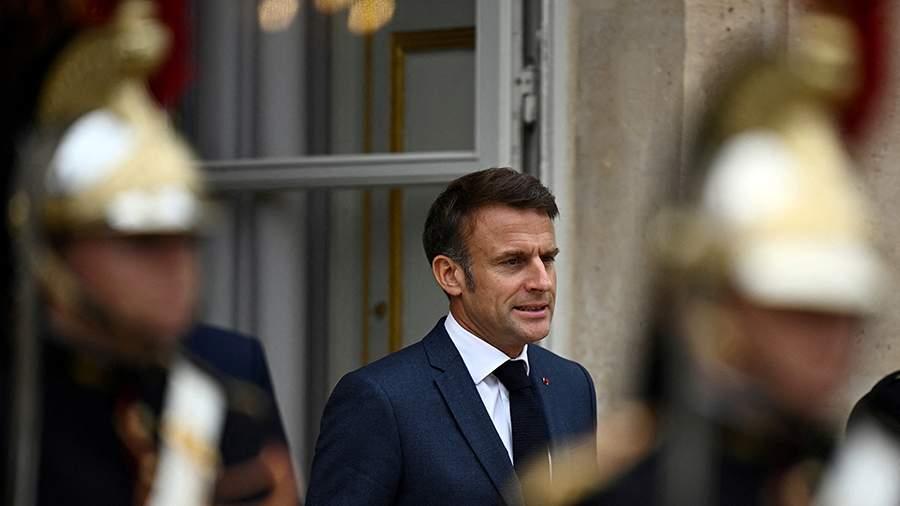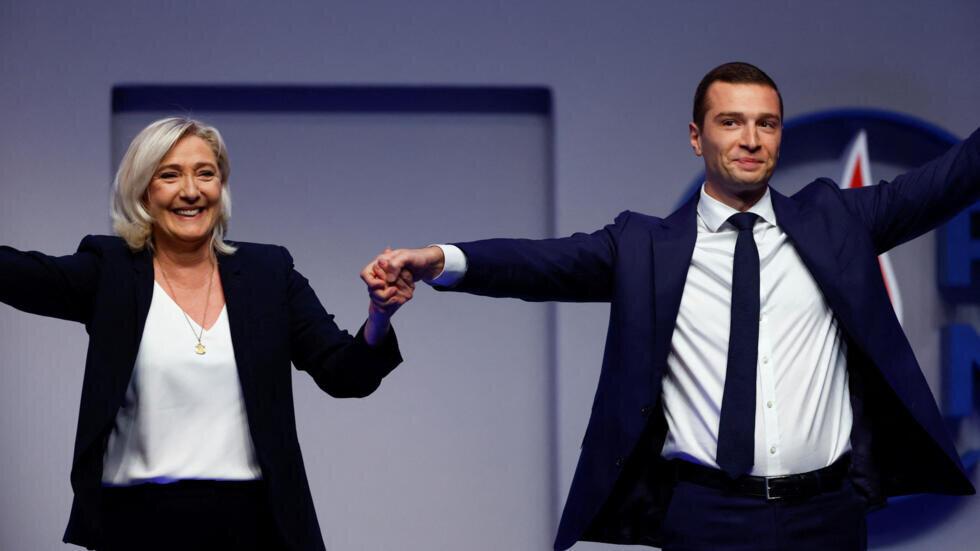French far-right triumph challenges Macron's leadership Elections signal shift in European politics
The results of the first round of parliamentary elections in France were not surprising. The French voted unanimously against the current government. Voter turnout was the highest in 40 years, with 69.7% of voters casting their ballots. As a result, the fate of mandates in 501 electoral districts will be decided in the second round, with sometimes three to four candidates competing for a seat in parliament.
The party of Marine Le Pen, "National Rally" (RN), led by Jordan Bardella, received 33.2% of the votes, ensuring an overwhelming majority of seats in the National Assembly. The left-wing bloc "New Popular Front" (NFP) garnered 28.1% of the votes, more than in the previous 2022 elections but insufficient to control parliament. Finally, the governing bloc " Together for the Republic" (Ensemble pour la République) received 21% of the votes. The right-wing "Republicans" (LR) received 10%. Following her victory, Marine Le Pen stated that "democracy has spoken, and the French have placed 'National Rally' and its allies in the first position, effectively dismantling Macron's camp."
The reasons for the far-right triumph likely lie in France's economic situation. Due to Macron's neoliberal reforms, a large number of French people are struggling financially, unable to make ends meet until their next paycheck. As noted by Evgeny Osipov, senior researcher at the Institute of General History of the Russian Academy of Sciences: "The French are shocked by the economic indicators, which are so low in the country today that millions of people feel it. Here are a few specific figures for today: in Paris, the average price per square meter of real estate is 10,000 euros. This is the price in a fairly average district of Paris, with poor schools and low-security levels. At the same time, the average salary in Paris today is 2–2,500 euros, and in France – 1800 euros. And this is considering prices in France that are 3–4 times higher than in Russia. With such salaries, it is impossible to buy property."
Traditional left-wing parties have ceased to defend the interests of their electorate, focusing instead on environmental agendas and the fight for LGBT rights. As noted by a French left-wing radical website: "Since 1981, various so-called left-wing governments have betrayed the hopes of workers, youth, and the poor. This played a central role in the rise of the 'National Rally', which continually expanded its electorate not only among the petite bourgeoisie but also among the working class. For decades, millions of workers have found that the alternation of right-wing and left-wing governments has done absolutely nothing to change their situation. Neither the right nor the left were concerned about unemployment, business closures, the dismantling of public services, lack of job security guarantees, and many other hardships, while a tiny minority accumulated obscenely large fortunes."

Today Macron may pin his hopes on the left-wing "New Popular Front", which under the motto of "fighting fascism" could come to the aid of the current government. One of its leaders, Mélenchon, has already expressed readiness for his bloc to withdraw their candidates who took third place in the first round of elections, in the effort to combat Bardella and Le Pen's "National Rally". A similar statement was made by the leader of the Socialist Party, who called for candidates from his party to withdraw from the race in the second round of parliamentary elections if they have little chance of defeating Macron's candidates. It's no surprise that the current president has supported these selfless efforts and called for a "broad democratic and republican" bloc to oppose Le Pen and Bardella. It's not hard to guess who in this bloc, to use Bismarck's words, will be the horse and who will be the rider.
However, Reuters agency noticed that while in the past the so-called "Popular Front" or "Republican Front" effectively worked against the far-right threat, today French voters in the second round are unlikely to be willing to vote as directed by leaders of political parties who have repeatedly gone bankrupt.
Experts believe that even after a defeat, Macron may attempt to gather a parliamentary bloc of left-wing and right-wing parties to block the initiatives of the "National Rally," but the effectiveness of such a union raises significant questions. According to Alexey Chikhachev, senior lecturer at the Department of European Studies at St. Petersburg State University and researcher at the Institute of International Studies at MGIMO: "The question is whether these parties will have enough parliamentary mandates to form such a coalition. In any case, it will be extremely unstable, as Macron will find it difficult to coexist even with socialists and environmentalists. In this scenario, the Prime Minister will likely not be from the President's party either, and coexistence will be challenging. Such a coalition is unlikely to last long after the elections, and France faces either early elections again in a year or a reshuffle of the government."
Immediately after the election results were announced, riots and protest actions against the victory of the "National Rally" erupted on the streets of many cities in France. On one hand, this situation somewhat resembles schizophrenia: publicly, the French express dissatisfaction with Bardella and Le Pen's triumph, yet in the voting booths, they cast their votes in favour of the far right. On the other hand, we see a familiar manoeuvre of Western governments where, in the event of right-wing radical victories, they provoke the left, and vice versa, while power continues to remain in the hands of centrists.
What could be the consequences of the "National Rally" victory? Marine Le Pen and Jordan Bardella hope to solidify their victory in the second round of elections to the National Assembly and secure a majority of 289 seats. In this case, Bardella would lead the government, stating he would be "prime minister for all of France, respecting the opposition, open to dialogue, and always caring about national unity." However, in any scenario, France faces a period of governance with a prime minister and president from different parties, which does not bode well for political stability.
How might this look in practice? According to the French Constitution, the president controls defence and foreign policy, but the budget depends on the will of parliamentarians. In this situation, Macron may lose the ability to set the domestic agenda and implement certain foreign policy projects funded with the approval of the National Assembly.

However, Marine Le Pen and Jordan Bardella are unlikely to lead a "revolt against the system." As Chikhachev points out, "if RN wins, they will continue to try to play the role of a systemic handshake force. Right now, their main goal is not to scare off their luck and not to take actions that would be perceived by the European establishment as too radical. If Bardella becomes prime minister, RN will play by the rules of the system and focus on socio-economic issues. Of course, the president alone cannot manage all sectors, but we should not expect any fundamental shifts."
An example of this approach could be Giorgia Meloni, who came to power in Italy amid sharp criticism of the EU but demonstrated full loyalty to Brussels once in the position of prime minister. Shortly before the start of the electoral campaign, the "National Rally" removed certain points from its social media pages related to France's foreign and defence policy, including proposals to withdraw from NATO's integrated command, halt joint projects with Germany, and pursue reconciliation with Russia.
When it comes to their socio-economic policies, the differences between Le Pen and Macron are not very pronounced – both the right-wing and centrists support radical market reforms, which could push them towards alignment against the "New People's Front". There's a high likelihood that the "National Rally" will tighten immigration legislation and increase support for Israel.
However, the symbolism of the far-right's victory, once considered "untouchable" in Europe for many decades after World War II, is significant. Le Monde recalled that these days, the EU "celebrates" the eighth anniversary of Britain's exit from its ranks and suggests that Macron's defeat and that of the liberals he leads could be as pivotal for Europe as "Brexit".
The views and opinions expressed by guest columnists in their op-eds may differ from and do not necessarily reflect the views of the editorial staff.








